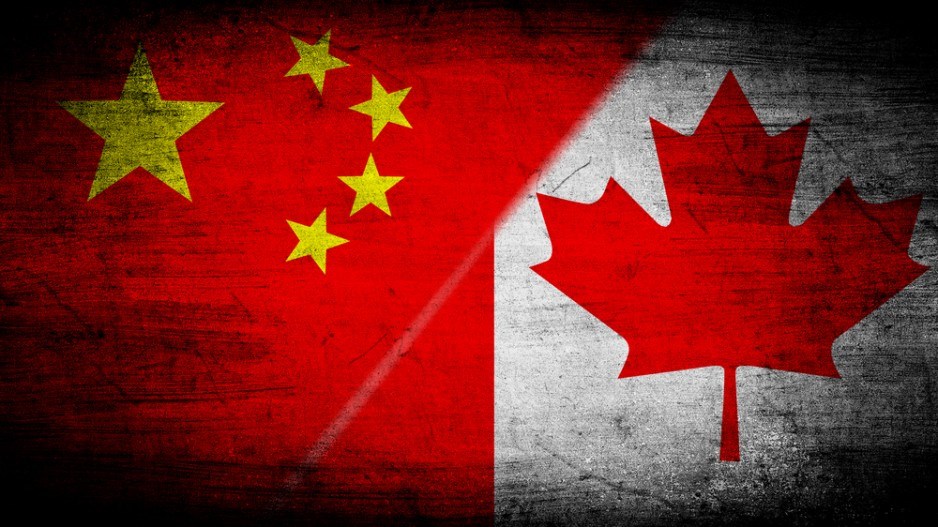The U.S. presidential election and the U.K.’s looming Brexit from the European Union are shifting Canadian attitudes toward a trade agreement with the world’s second largest economy.
According to the Asia Pacific Foundation of Canada’s 2017 National Opinion Poll, more than half of Canadians now support a Canada-China free trade agreement, and 62% believe a formalized agreement with China is important given rising protectionist policies around the globe.
Released May 3, the results show 55% of respondents support a free trade agreement, up 9 percentage points year-over-year, and up 19 points from 2014.
“We’ve seen the Trump effect and also the impact of what’s been happening in Europe,” said Dr. Eva Busza, vice-president of research and programs at the foundation.
“There’s no question, and it’s significant statistically, that there’s been a bump up this year from last year.”
Along with general support for a Canada-China agreement, the majority respondents believed expanded trade between both countries would encourage investment in Canadian businesses (63%), bring greater economic prosperity to Canada (57%) and give Canada a competitive edge over other countries (54%).
Additionally, more than three-quarters agreed that stronger economic ties will lead to more opportunities for Canadian business, and seven in 10 agreed that pursuing those ties will create future economic opportunities for Canadian youth, both at home and in Asia.
“2014 was a really low point in Canada-Asia, Canada-China relations,” said Busza, adding that attitudes across metrics hit historic lows three years ago, and have since rebounded.
She notes that controversy around Canada’s Foreign Investment Promotion and Protection Agreement, the China-owned CNOOC Ltd. takeover of Calgary’s Nexem Inc., and the issue of Chinese temporary workers in Canadian mines all affected sentiment in 2014.
Different issues remain top-of-mind today, particularly those related to the environment and human rights, the top two priorities for Canadians when it comes to Canada’s relationship with China. Another 56% are concerned that cheap Chinese goods will compete with Canadian products.
While Canadians generally support enhancing ties with Asia – which includes support for strengthened economic relationships with Japan (61%), Vietnam (46%), Indonesia (45%) and the Philippines (45%) – 39% do not think Canada is prepared to capture growth in Asian markets. Another 33% remain uncertain.
“Canadian businesses that are wanting to engage in Asia, one of the big challenges they face – I mean there are a number – but one of the big ones is going to scale. Being able to satisfy the demand that comes from China. And to me, that’s one good example of the fact that we’re not ready,” said Busza.
“We know that if we are to increase our volume of engagement on trade or on people mobility with Asia, our infrastructure not only to Asia but throughout the country has to be strengthened. It’s a huge opportunity, but there are a number of steps that we have to take and quickly to be better prepared for taking advantage of that opportunity.”
How to address or respond to U.S. protectionist policies has been a theme throughout the 2017 provincial election campaign, particularly after preliminary tariffs on Canadian softwood lumber exports were announced late April. Turning to Asia has been touted as a solution by BC Liberal Leader and Premier Christy Clark.
"We are going to do an intense series of trade missions to China, Japan and Korea right after the election, if we're elected," Clark told BIV's editorial board last week. "We have increased our trade with China by 2,000%. And that's made us less dependent on the United States than any other market in Canada. We've got to keep that going and that means ratcheting it up even further."
In a BIV interview May 3, BC NDP Leader John Horgan placed an emphasis on answering how B.C. can continue to have a positive trading relationship with the United States, while diversifying trade to Asian markets.
Specifically on the topic of China, results in the Asia Pacific Foundation poll were divided on whether Canada expanding trade with the country would cause problems with the U.S. administration.
"Being in a diverse, dynamic, multicultural community we have tremendous opportunities to trade around the world. Our population lends itself to that, our proximity to Asian markets, whether it be through Prince Rupert or the Port of Vancouver, is a tremendous opportunity for us," said Horgan.
Busza identified forestry, clean technology, energy and gaming among the B.C. economic sectors that would stand to benefit significantly from strengthened economic ties between Canada and China, and the Asian market generally.
When it comes to forestry and technology, the BC Green party's policies have looked inward, for example, establishing a panel to identify opportunities in forestry, and injecting varying levels of seed, angel and incubator funding to support technology companies.
The Asia Pacific Foundation of Canada’s 2017 National Opinion Poll surveyed a representative sample of 1,654 Canadians adults March 20 to 27. The survey’s margin for error is +/-2.41%.
@hayleywoodin




